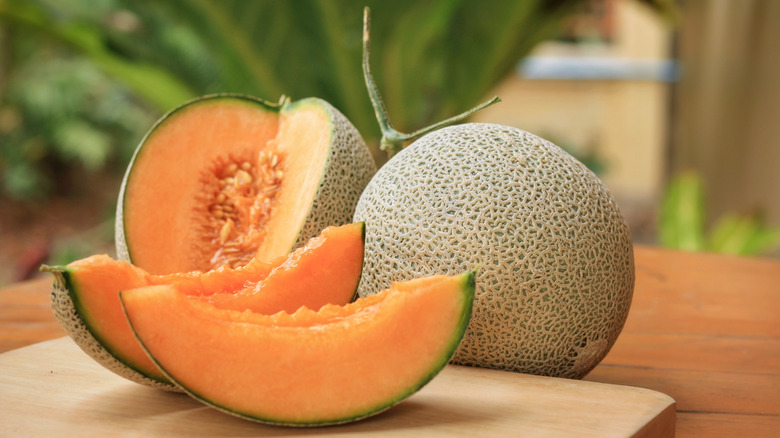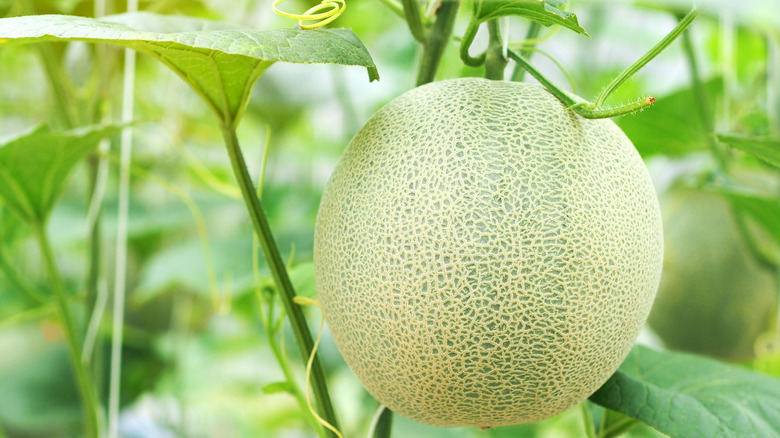Here's Why Some Cantaloupe Has No Flavor
Few things are as frustrating as picking up fresh produce that looks and smells amazing only to discover that it tastes completely flavorless. You might suspect that your favorite fruit most likely just had a bad year. But there are three key factors that determine whether cantaloupe will taste deliciously sweet. And there's a chance that one of those three factors won't affect the whole crop.
According to Penn Live, cantaloupes grow without ripening much at all until they are almost ready to pick. The melons then ripen quite quickly on the vine. So if farmers pick their cantaloupes too soon, they won't have that sweet, summery flavor you expect.
But if the melons are being picked when they are ripe and ready, then the issue might be the soil or watering conditions. It's those last two factors that can affect an entire crop should one of them go wrong.
This is one of the biggest factors
Penn Live explains that cantaloupes require a lot of nutrition from the soil in which they grow. If the soil was used for another crop before the cantaloupes and is stripped of much of the needed nutrients, it will definitely affect the cantaloupes.
Getting an even amount of water throughout their growth cycle is another important factor when growing and harvesting cantaloupes. Texas A&M agrees that too much water can cause the flavor of cantaloupes to be distorted too. While you cannot control the weather, you can keep the plant well-watered during dry spells, which is especially helpful if you've had very few stormy periods during the growth cycle.
Though you cannot remedy the flavor of the cantaloupes you already have that don't taste sweet, those who grow their own can pay close attention to the weather and respond accordingly. Otherwise, you and your grocery store cantaloupes are at the mercy of the growers.

